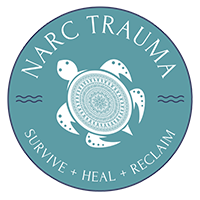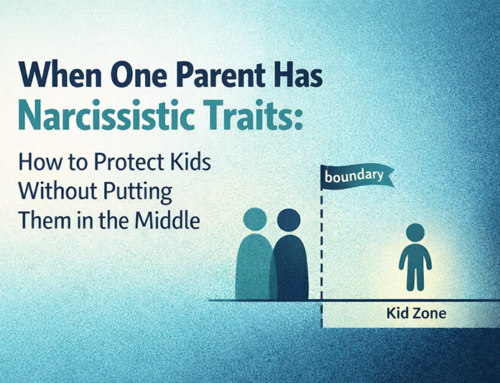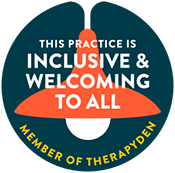Empowerment and Healing for Survivors of Narcissistic and Toxic Relationships

By Brenda Stephens, Licensed Professional Clinical Counselor
Click the button below for additional information and registration for our 8-week Group Therapy Experience.
Navigating the aftermath of narcissistic abuse can feel overwhelming and isolating. Many individuals find it challenging to reclaim their sense of self after such detrimental relationships. This blog will guide you through the process of healing, providing practical advice and empowering steps to recover from the impacts of toxic relationships.
Understanding Narcissistic Abuse
Narcissistic abuse can be confusing and insidious. Recognizing the signs is the first step toward healing. This section will discuss the characteristics of narcissistic behavior and how it manifests in relationships.
At its core, narcissistic abuse often involves a pattern of manipulation, gaslighting, and emotional invalidation. Many survivors feel shattered, questioning their own reality and emotions. This disorientation is a hallmark of narcissistic relationships, designed to keep the victim in a perpetual state of confusion.
Understanding these dynamics is crucial; knowledge becomes your ally. By identifying these characteristics, you empower yourself to break free from the cycle. Recognize that the problem lies not within you but in the dysfunction of the other person.
The Impact of Toxic Relationships on Your Mental Health
Toxic relationships can significantly affect your mental health, leading to anxiety, depression, and a fractured self-image. Here, we will explore the short and long-term effects of being in a relationship with a narcissist.
Experiencing consistent emotional turmoil can lead to feelings of worthlessness and despair. The daily gaslighting can cause you to doubt yourself, eroding your confidence and leaving psychological scars. In the long run, unresolved trauma may contribute to persistent mental health challenges, such as PTSD or chronic anxiety.
It’s vital to acknowledge these impacts openly. Surface-level acknowledgment is necessary; however, delving deeper allows for genuine healing. Through therapy and support groups, survivors can reclaim ownership of their mental health. Building resilience is possible, even after prolonged exposure to emotional abuse.
Recognizing Your Worth: The First Step to Empowerment
Reclaiming your self-worth is essential in the healing process. This section will provide tips on recognizing your value and rebuilding your self-esteem after experiencing narcissistic abuse.
A common misconception is that your worth is defined by how others treat you or perceive you. On the contrary, it should stem from your intrinsic value as a person. Journaling your thoughts and affirmations can serve as a powerful tool in this journey. By writing down what you appreciate about yourself, you actively counteract the negative messages instilled by toxic relationships.
Moreover, surrounding yourself with supportive individuals who uplift you is paramount. Positive reinforcement from others helps solidify your understanding of your self-worth. Peer encouragement transforms the narrative from victimhood to empowerment, encouraging you to recognize how far you’ve come in your journey.
Setting Boundaries: Protecting Yourself from Future Harm
One crucial aspect of healing is learning to set and maintain boundaries. We will discuss practical strategies for establishing healthy boundaries in future relationships to
protect yourself from similar toxicity.
Setting boundaries is often daunting. The fear of rejection or confrontation may hold you back. However, understanding that healthy boundaries are essential for your well-being makes the effort worthwhile. They clarify what you will and will not accept, fostering respect in your interactions.
One effective approach is practicing assertiveness. By communicating your needs clearly and confidently, you lay the groundwork for healthier relationships. Remember, you have the right to advocate for yourself. Establishing boundaries isn’t selfish; it’s a form of self-care that preserves your mental and emotional health.
Finding Support: Building a Strong Network
Support is vital in the healing journey. This section will cover the importance of finding reliable friends, support groups, and mental health professionals who can assist you in your recovery.
It’s crucial to surround yourself with individuals who understand your experiences and validate your feelings. Building connections with others who have faced similar struggles fosters a sense of belonging and shared healing. Support groups, both in-person and online, can serve as a lifeline during difficult times.
Moreover, engaging with a mental health professional not only provides guidance but also equips you with tools for managing anxiety and rebuilding your self-esteem. Therapy provides a safe haven where you can explore your feelings without fear of judgment. Remember, seeking help is a sign of strength and an essential step toward recovery.
Practicing Self-Care and Mindfulness
Engaging in self-care practices and mindfulness can significantly assist in the healing process. Here, we will explore various techniques for nurturing your mind and body, fostering resilience and inner peace.
Self-care is often overlooked but is vital for rebuilding. Simple practices like journaling, meditation, or even taking walks in nature can cultivate a sense of peace and clarity. Mindfulness techniques help anchor you in the present, alleviating the overwhelming emotions that may arise from past trauma.
Creating a self-care routine tailored to your needs enables you to prioritize your well-being actively. Engage with activities that bring you joy, whether it’s reading, painting, or spending time with loved ones. You deserve these moments of joy, ensuring they recharge your spirit.
Moving Forward: Cultivating Healthy Relationships
As you heal, it’s important to focus on building healthy relationships. This final section will provide guidance on recognizing healthy dynamics and what to look for in future partners, ensuring that you attract positive energy into your life.
Recognizing the traits of a supportive partner is essential. Look for individuals who respect your boundaries, encourage your independence, and communicate openly. Healthy relationships thrive on mutual respect, trust, and shared vulnerability, contrasting sharply with the chaos witnessed in toxic situations.
Additionally, be vigilant in identifying red flags. Trust your instincts; if something feels off, it’s okay to take a step back. Prioritize your emotional safety as you navigate new connections. Remember, you are worthy of love that nurtures rather than belittles.
Embracing Your Journey to Recovery
Healing from narcissistic abuse is a journey that takes time and effort, but it is entirely possible. By acknowledging your experiences and embracing the path toward self-love and empowerment, you can reclaim your identity and happiness. Remember, you are not alone in this process, and each step you take brings you closer to a healthier and happier you.
Click the button below for additional information and registration for our 8-week Group Therapy Experience.







